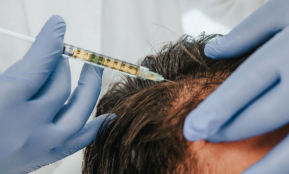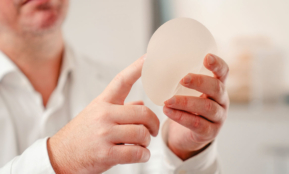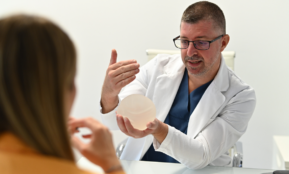Aesthetics
Face
The most modern facial treatments help you look younger, more elegant and happier.
Body
Feel comfortable in your body and correct sources of discomfort.
Chest
Make your wish for a better appearance come true and restore your self-confidence with aesthetic correction.
Hair and scalp
Minimally invasive solutions for hair loss and a natural look.
Issues
Find solutions to some of the most common aesthetic problems.
Treatments
Treatments

Hair and scalp mesotherapy

Thinning hair therapy with your own blood

Trichotest – DNA analysis of hair loss and baldness

Hair loss in women – causes and how to prevent it

Hair loss in men – causes and how to prevent it

Alopecia – hair loss
FACE

BODY

Implantology Center
Different methods of solving the problem of missing one or more teeth.
Prosthetics
The most common solution in cases of functional or aesthetic tooth damage.
Aesthetic Dentistry
Harmonious tooth shaping and tooth color correction according to your wishes.
General Dentistry
Modern and timely diagnostics, treatment and dental hygiene are the key to the health of your teeth.
Issues
Find solutions to some of the most common aesthetic problems.
About us
Locations
Description of the procedure
Endodontics is the branch of dentistry that deals with the treatment of the internal tissues of the tooth, especially the pulp, which consists of nerves and blood vessels inside the tooth. The most common procedure in endodontics is root canal treatment , popularly known as “root extraction” . The goal of endodontic treatment is to save a tooth that has been affected by infection or pulp damage, thereby avoiding tooth extraction.
Candidates
Candidates for endodontics are people who have:
- Deep caries that has reached the pulp and caused inflammation or infection.
- Tooth injury that has led to damage or death of the dental pulp.
- Inflammation or infection of the root of a tooth that causes pain, swelling, or abscess formation.
- Tooth sensitivity to heat, cold, or pressure, which may be a sign of pulp damage.
In some cases, the patient may not have any symptoms, but the dentist will see an infection in the root of the tooth on an x-ray.
Preparation
The dentist will perform a clinical examination and take an X-ray of the tooth to assess the condition of the roots and surrounding tissue.
Before you begin, you need to inform the dentist about all your health problems, medications you are taking, and any symptoms you are experiencing.
Based on the examination and diagnosis, the dentist will determine whether an endodontic procedure is necessary. In some cases, multiple visits may be necessary.
Procedure progress
Before the procedure begins, the dentist will apply local anesthesia to ensure a painless procedure.
The dentist opens the tooth to gain access to the pulp chamber and root canals.
Damaged or infected pulp is removed using specialized instruments. The canals are then cleaned, shaped and disinfected to remove all bacteria and infected tissue.
After cleaning and shaping, the root canals are filled with gutta-percha or a biocompatible material to prevent reinfection.
At the very end, a temporary filling is often placed on the tooth, and at later visits, a permanent filling or crown may be placed.
Recovery
After the procedure, you may experience mild pain or sensitivity, which is normal and usually resolves within a few days. Our dentists will advise you on taking painkillers. Most patients can return to their daily activities immediately after the procedure, although it is advisable to avoid chewing on the side of the tooth that was treated until it is completely finished.
In case the tooth is severely damaged, it is necessary to place a crown after endodontic treatment to strengthen and protect the tooth.
Precautions
Regular check-ups : After the procedure, it is important to visit the dentist regularly to monitor the condition of the treated tooth and ensure full recovery.
Avoiding pressure on the treated tooth : Until the dentist places a permanent crown or filling, the patient should avoid chewing on the treated tooth to prevent damage to it.
Oral hygiene : Maintaining oral hygiene is essential to prevent new infections. Regular brushing, flossing, and rinsing with antibacterial mouthwashes are recommended.
Monitoring of symptoms : If severe pain, swelling or any other symptoms occur after the procedure, it is necessary to contact the dentist immediately, as this may indicate complications or re-infection.
Price
In cooperation with banks, Bagatin Polyclinic provides the option of paying in installments, as well as interest-free payments up to a certain number of installments.
You can check more about payment methods and treatment prices in the current price list of the Bagatin Polyclinic:
They said about us...
Your
Frequently asked questions
Contact us
Contact us with confidence.
By filling out this form, our call center will contact you within 24 hours to arrange your appointment. We keep all information you provide us with in the strictest confidence.
Phone:
E-mail:















